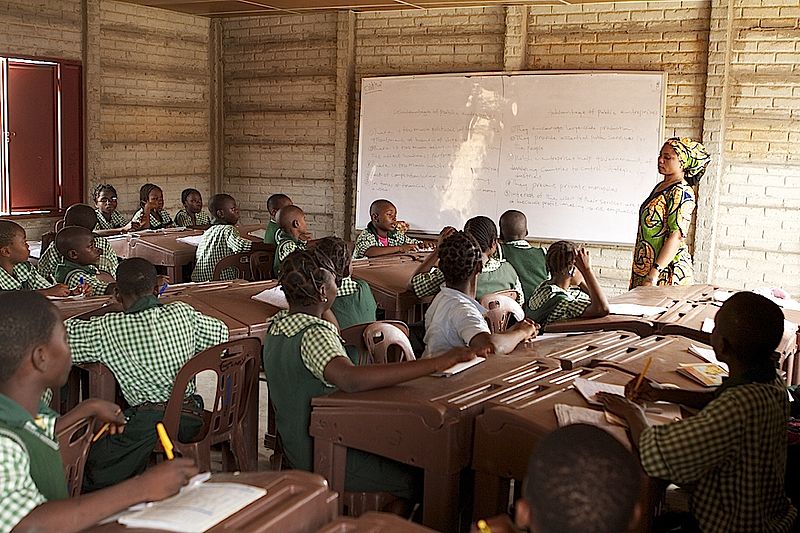The Nigerian education system faces numerous challenges in implementing its national curriculum. Designed to provide structured and comprehensive educational framework the Nigerian curriculum aims to standardize learning across the country. It ensures that students receive quality education. However, practical application of this curriculum is fraught with obstacles. These affect its effectiveness and impact. This article delves into primary challenges of implementing the Nigerian curriculum. Examining issues related to resources. Teacher training infrastructural constraints and socio-cultural factors.
One of significant challenges in implementing Nigerian curriculum is lack of adequate resources. Schools across Nigeria often struggle with insufficient teaching materials. Outdated textbooks hinder progress. Inadequate technological support also presents an issue. This scarcity hampers educators' ability to deliver curriculum effectively and engage students in meaningful learning experiences.
Textbooks and Educational Materials: Textbooks are fundamental components of curriculum. They provide necessary content and structure for lessons. However many schools face difficulties in acquiring updated textbooks due to financial constraints. This results in occasional reliance on outdated materials. They may not reflect current knowledge or teaching methodologies.
Technological Resources: In the digital age, technology plays a crucial role in education. However, many Nigerian schools lack the necessary technological infrastructure, such as computers, projectors, and internet access. The absence of these resources limits opportunities for interactive and multimedia-based learning, which are integral to modern educational practices.
Teacher Training and Professional Development
Effective implementation of the Nigerian curriculum is heavily dependent on the quality of teachers and their ability to deliver the curriculum as intended. Unfortunately, teacher training and professional development are areas that require significant improvement.
Inadequate Training Programs: Many teachers in Nigeria have not received adequate training in the new curriculum and its pedagogical approaches. This lack of training can result in ineffective teaching practices and a lack of understanding of how to implement the curriculum effectively. Continuous professional development is essential to keep educators updated with the latest teaching methods and curriculum changes.
Teacher Motivation and Support: Beyond training, teacher motivation and support are critical factors influencing curriculum implementation. Many teachers face challenges such as low salaries, poor working conditions, and lack of support from educational authorities. These issues can negatively impact their performance and commitment to delivering the curriculum effectively.
Infrastructural Constraints
The physical infrastructure of schools plays a vital role in the implementation of the curriculum. In Nigeria, many schools operate under challenging conditions that hinder the effective delivery of educational programs.
School Facilities: Many schools in Nigeria suffer from inadequate facilities, including overcrowded classrooms, insufficient furniture, and poor sanitation. These conditions create an environment that is not conducive to learning and can affect students' ability to engage with the curriculum fully.
Access to Education: In some regions, especially in rural and underserved areas, access to education is limited due to infrastructural deficiencies. The lack of nearby schools, poor transportation options, and inadequate facilities contribute to lower enrollment rates and higher dropout rates, affecting the overall effectiveness of the curriculum.
Socio-Cultural Factors
The socio-cultural context in which the curriculum is implemented also presents challenges. Nigeria is a diverse country with various ethnic, linguistic, and cultural groups, which can influence the way the curriculum is received and applied.
Cultural Relevance: The Nigerian curriculum aims to be inclusive and relevant to the diverse cultural backgrounds of students. However, there may be challenges in ensuring that the curriculum reflects the cultural and linguistic diversity of the country adequately. Curriculum content that does not align with students' cultural experiences may lead to disengagement and reduced effectiveness.
Regional Disparities: Educational needs and priorities can vary significantly across different regions of Nigeria. A one-size-fits-all approach to curriculum implementation may not address the specific needs and challenges faced by students in different regions. This disparity can lead to inconsistencies in educational outcomes and hinder the overall success of the curriculum.
Policy and Governance Issues
The successful implementation of the Nigerian curriculum also depends on effective policy-making and governance. However, there are several issues in this regard that impact curriculum delivery.
Inconsistent Policy Implementation: Policies related to curriculum implementation are often subject to changes and inconsistencies. Frequent changes in educational policies and curricula can create confusion among educators and disrupt the continuity of instruction. A stable and consistent policy framework is essential for effective curriculum implementation.
Administrative Challenges: Bureaucratic inefficiencies and administrative challenges can also impede the implementation of the curriculum. Delays in policy execution, inadequate monitoring, and lack of coordination between educational authorities and schools can hinder the effective application of the curriculum.
Community and Parental Involvement
The involvement of communities and parents in the educational process is crucial for supporting curriculum implementation. However, there are challenges in fostering effective collaboration between schools, parents, and communities.
Parental Engagement: Engaging parents in the educational process can be challenging, especially in communities where there is a lack of awareness or understanding of the curriculum's importance. Parents play a critical role in supporting their children’s education, and their involvement can positively impact curriculum delivery.
Community Support: Community support for schools and educational initiatives is essential for successful curriculum implementation. However, in some areas, there may be limited community involvement or support due to various factors such as economic constraints, cultural differences, or lack of awareness.
Conclusion
The implementation of the Nigerian curriculum is a complex process influenced by various factors, including resource constraints, teacher training, infrastructural limitations, socio-cultural dynamics, policy issues, and community involvement. Addressing these challenges requires a multi-faceted approach involving increased investment in educational resources, enhanced teacher training and support, improved infrastructure, and greater community and parental engagement. By tackling these issues, Nigeria can work towards achieving a more effective and equitable educational system that benefits all students and supports the successful delivery of the national curriculum.
